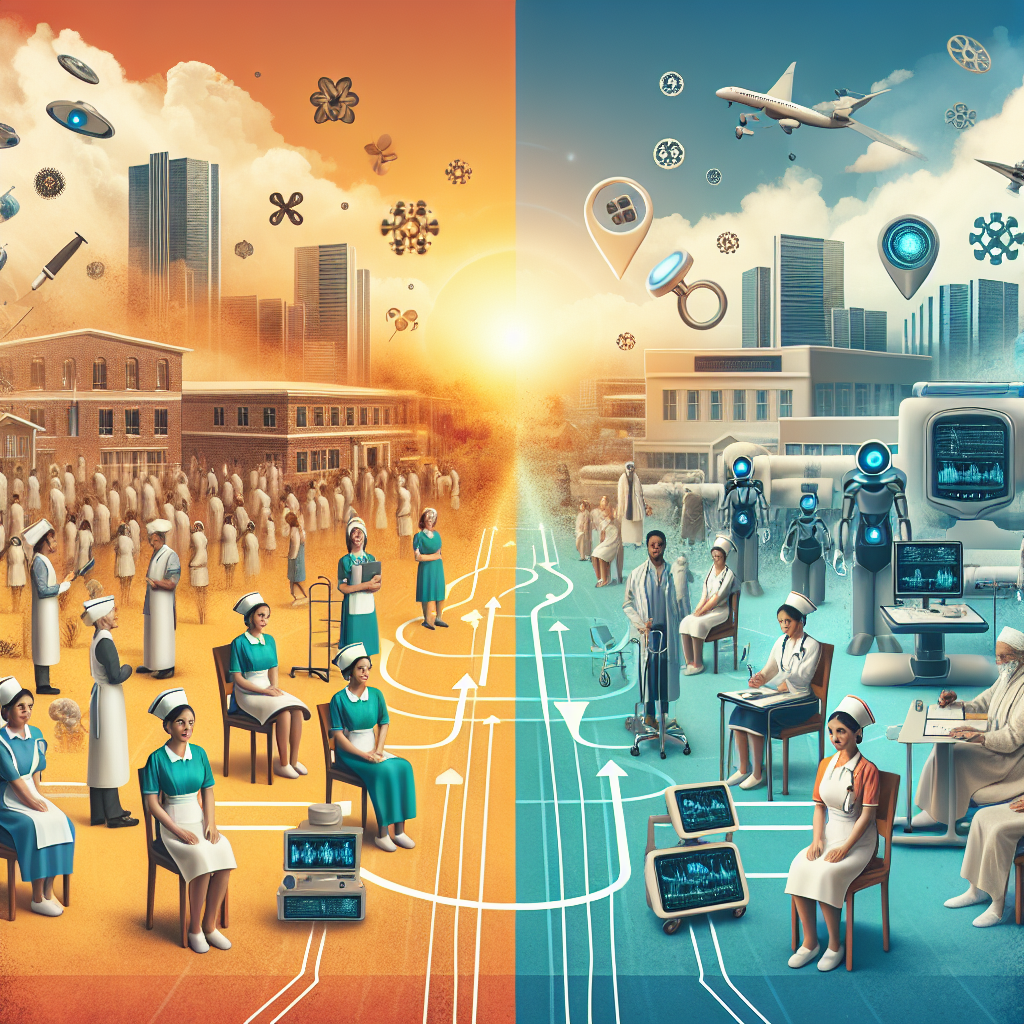The healthcare industry is constantly evolving, with new technologies and innovations emerging to improve patient care and streamline processes. One of the most significant advancements in recent years is the integration of artificial intelligence (AI) and automation in healthcare practices. AI automation has the potential to revolutionize the way healthcare is delivered, making processes more efficient, accurate, and personalized.
The Future of AI Automation in the Healthcare Industry
AI automation in the healthcare industry is already proving to be a game-changer in various aspects of patient care. From diagnosing diseases to managing patient records, AI automation is helping healthcare professionals work more efficiently and effectively. Here are some key areas where AI automation is expected to have a significant impact on the healthcare industry in the future:
1. Diagnosing diseases: AI algorithms can analyze medical images, such as X-rays, MRIs, and CT scans, to detect abnormalities and diagnose diseases accurately and quickly. This can help healthcare professionals make informed decisions about treatment options and improve patient outcomes.
2. Personalized treatment plans: AI algorithms can analyze patient data, such as genetic information, medical history, and lifestyle factors, to create personalized treatment plans for patients. This can help healthcare professionals tailor treatments to individual patients’ needs and improve overall patient care.
3. Predictive analytics: AI algorithms can analyze large amounts of healthcare data to predict trends and patterns in patient outcomes. This can help healthcare professionals identify high-risk patients and intervene early to prevent complications and improve patient outcomes.
4. Remote monitoring: AI automation can enable remote monitoring of patients, allowing healthcare professionals to track patients’ vital signs and health metrics in real-time. This can help healthcare professionals provide timely interventions and improve patient outcomes, especially for patients with chronic conditions.
5. Administrative tasks: AI automation can streamline administrative tasks, such as scheduling appointments, managing patient records, and processing insurance claims. This can help healthcare professionals focus more on patient care and reduce the burden of administrative tasks.
6. Drug discovery: AI algorithms can analyze large amounts of data to identify potential drug candidates and predict their efficacy and safety. This can accelerate the drug discovery process and lead to the development of new treatments for various diseases.
7. Telemedicine: AI automation can enhance telemedicine services by enabling virtual consultations, remote monitoring, and personalized treatment recommendations. This can improve access to healthcare services and facilitate patient engagement and satisfaction.
Overall, AI automation in the healthcare industry has the potential to transform patient care, improve outcomes, and reduce costs. By leveraging AI technologies, healthcare professionals can work more efficiently and effectively, leading to better patient care and outcomes.
FAQs
Q: Is AI automation in healthcare safe?
A: AI automation in healthcare is designed to enhance patient care and improve outcomes. However, like any technology, AI automation should be used responsibly and ethically to ensure patient safety and privacy.
Q: Will AI automation replace healthcare professionals?
A: AI automation is meant to assist healthcare professionals in their work, not replace them. Healthcare professionals play a critical role in patient care, and AI automation can help them work more efficiently and effectively.
Q: How can healthcare organizations implement AI automation?
A: Healthcare organizations can implement AI automation by investing in AI technologies, training staff on how to use AI tools, and integrating AI systems into existing healthcare processes. It is important to have a clear strategy and plan for implementing AI automation in healthcare practices.
Q: What are the challenges of implementing AI automation in healthcare?
A: Some of the challenges of implementing AI automation in healthcare include data privacy and security concerns, regulatory compliance, ethical considerations, and resistance to change. Healthcare organizations need to address these challenges to successfully implement AI automation in healthcare practices.
Q: What are the benefits of AI automation in healthcare?
A: The benefits of AI automation in healthcare include improved patient care and outcomes, increased efficiency and accuracy in diagnosing diseases, personalized treatment plans, predictive analytics, remote monitoring, streamlined administrative tasks, drug discovery, and telemedicine services. AI automation has the potential to revolutionize the way healthcare is delivered and improve patient care.

